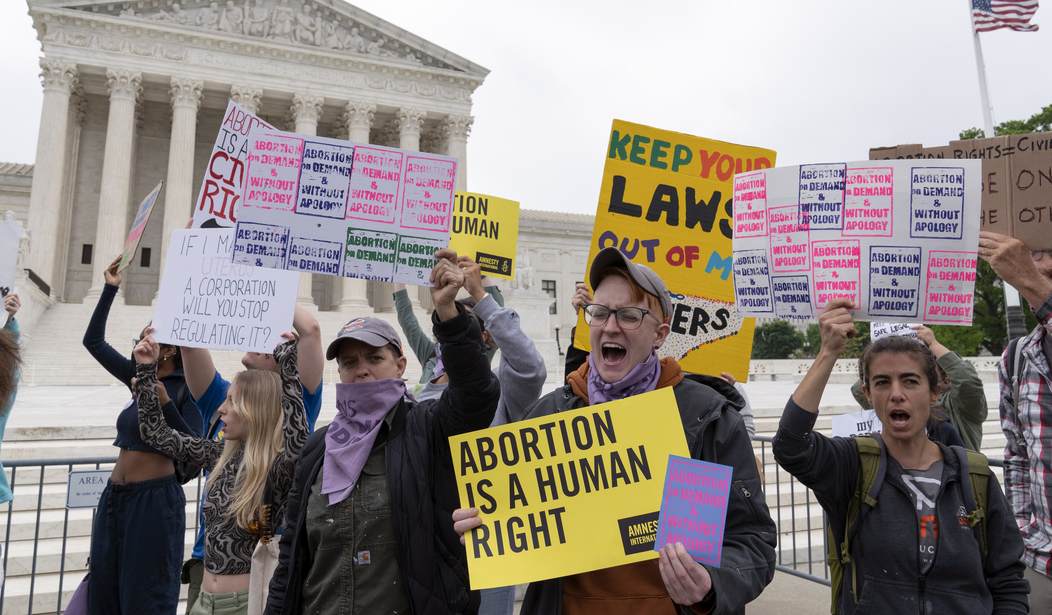The authenticated leak of Justice Samuel Alito's draft 5-4 opinion overruling the United States Supreme Court 1973 abortion rights precedent of Roe v. Wade is likely to stick. The draft fully reflected the judicial philosophies of the five-member majority and the oral argument last December in Dobbs v. Jackson Women's Health Organization.
But overruling Roe is not the nail in the coffin for abortion rights. Far from it. The overruling would entrust abortion policy to the 50 state legislatures, with a marginal role for the federal government through the power of the purse or the regulation of interstate commerce, e.g., the Hyde Amendment, which forbids federal monies to underwrite elective abortions.
Moreover, state policies will continue to be constrained by constitutional limitations. Under the Privileges and Immunities Clause of Article IV and the right to interstate travel, anti-abortion states are prohibited from preventing their citizens from obtaining an abortion in a pro-abortion state. Additionally, conservative Chief Justice William H. Rehnquist in Webster v. Reproductive Health Services declared state statutes decreeing that life begins at conception, endowed with rights of personhood protected by the Fourteenth Amendment, would be constitutionally suspect.
State legislatures are likely to exhibit wide variations in abortion policies. Liberal states like California, New York and Connecticut will probably endorse subsidized abortions on demand. Remember, then-California Gov. Ronald Reagan in 1967 signed a liberal state abortion law that anticipated the Supreme Court's holding in Roe.
Approximately one-third of the states had liberalized their abortion laws in the three years antedating Roe. Further, abortion-rights advocates are well-funded. They can fend for themselves in the political arena: Planned Parenthood, NARL Pro-Choice America, the National Abortion Rights Federation, the National Organization of Women and the American Civil Liberties Union. Anti-abortion organizations are equally well-endowed and politically organized: National Right to Life Committee, Pro-Life Action League, Susan B. Anthony List and the Republican National Coalition for Life. Strict anti-abortion laws are likely to proliferate in conservative states like Missouri, Ohio, Texas and Georgia.
Recommended
It is not anomalous that under the Constitution issues of considerable moral moment are addressed differently from state to state -- for example, laws against liquor or gambling. And if abortion is thought to be sufficiently morally momentous to require a national policy, then amending the Constitution is the path forward, as with the Civil War Amendments that emancipated Black people and endowed them with full rights of citizenship. During the 45 years that have elapsed since Roe, Congress has refrained from proposing anti-abortion or abortion-rights constitutional amendment, and two-thirds of the states have never summoned a constitutional convention under Article V to do so. But the political dynamics favoring a constitutional amendment may change after Roe is overruled.
The predicable new methods of inducing abortions through interstate delivery of pills or telemedicine are inevitable and may confound abortion restrictions. The Commerce Clause of the Constitution probably prohibits states from banning interstate commerce in abortion pills or medical advice or treatments over the internet, especially in the home. If so, state abortion restrictions will be easily circumvented. The Supreme Court, however, has held that Congress may prohibit the use instrumentalities of interstate commerce to promote activities thought immoral or contrary to the national welfare -- for example, liquor, lottery tickets, prostitution, misbranded drugs and impure food. These precedents suggest Congress could ban the use of instrumentalities of interstate commerce to promote abortion, at least in pro-abortion states. The question is not free from doubt. If Congress remains divided, however, no abortion action is likely.
The issue will remain with the states after Roe is overruled, and medical technology will be in the catbird seat. Anti-abortion groups must remain politically active or confront defeat through congressional inaction.
























Join the conversation as a VIP Member